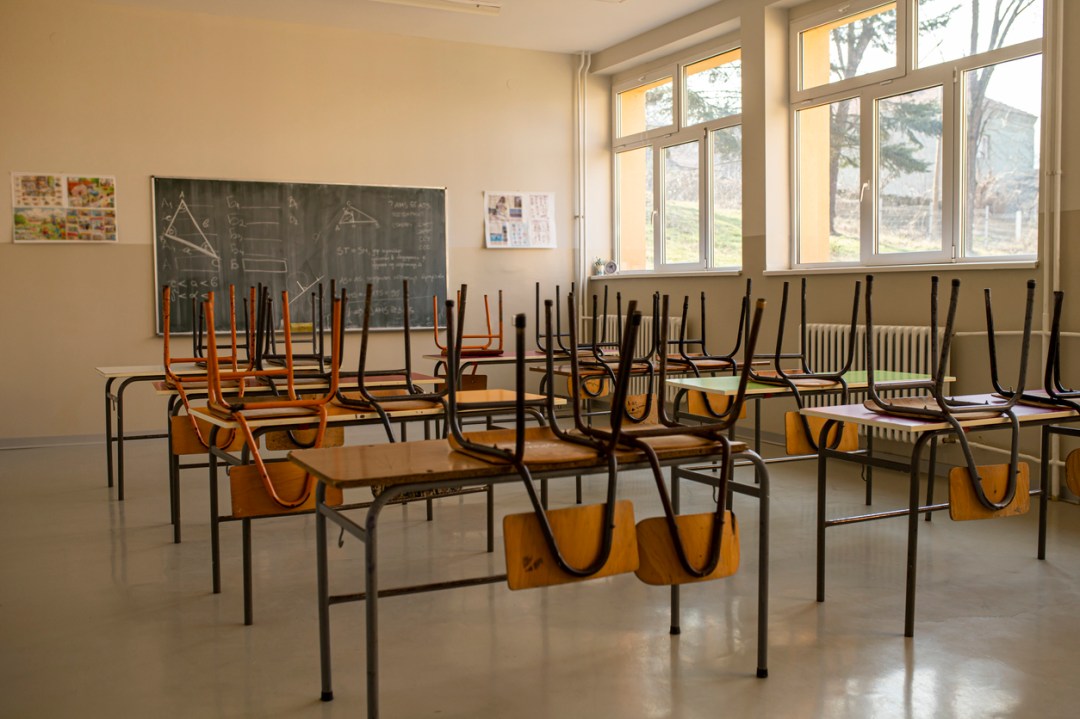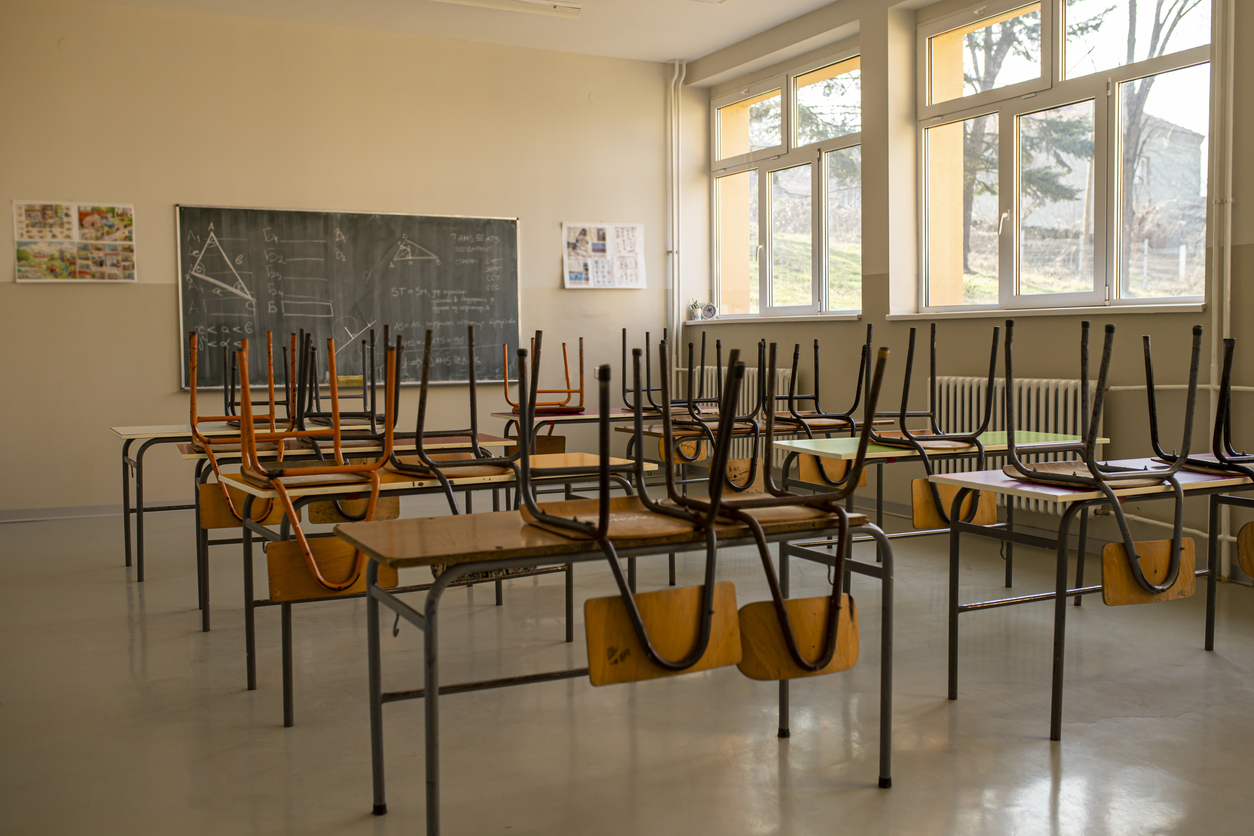As half-term approaches, the kids at the school gate visibly slow down. They start dragging their feet and purple smudges appear under their eyes. I feel sorry for them. Then I think of my home country, America. No half-terms. Children in the US went back to school on 3 January and they won’t have a week off until 3 June – five months without a break.
Children form their own societies, Lord of the Flies-style, where the only rules are the ones the bullies enforce
If that sounds blissful from a childcare point of view, here’s the drawback: the American summer break is 11 weeks long. Eleven weeks! Now that I’m raising my own children in the UK, the school calendar here seems positively civilised, with week-long breaks at intervals throughout the school year and a modest six weeks off in the summer. Compared with the US system it seems sensible and measured. What do American parents do with their kids for 11 weeks? What did my parents do with me? Turned me loose, to be honest.
My childhood was distinctly less supervised than those of my own kids, but perhaps every generation thinks that. To fill the long summers, my sisters and I built miniature societies outside in our front yard. We drew our roads in chalk on the long driveways and pavements surrounding our house, stop signs and passing lanes – the basic infrastructure to connect our shops, schools and banks which we set up in the garage and rec room. One year my best friend and I forced our younger siblings to get married – white dress, the kiss and all. I can’t imagine our parents would have approved, but they didn’t know about it.

My parents also sent me to summer camp, but that was only for a week. Ten more to go. For the rest, Mom stayed at home with us, but that’s no longer the norm: most American families are now dual income. One frightening statistic reveals that 17 per cent of US parents with children aged between four and 14 said the kids were home alone during the summer. In the same survey, 20 per cent of parents spent $3,000 or more on summer childcare. Spread over ten weeks, that’s $60 per day. Someone working full-time on minimum wage will bring home $54 a day.
No wonder kids are left home alone. The great American summer epics make sense in retrospect – think of Stephen King’s It and its offspring, Stranger Things, in which kids zoom around on bicycles, scuff their knees, run from bullies and come home bloody after dark. The reality of an American summer isn’t far off. It’s so long that the children basically form their own societies, Lord of the Flies-style, where there are no grown-ups and the only rules are the ones the bullies enforce.
What about the summer camps? In reality, most are far too expensive for the majority of working families. A 2020 survey found that only 15 per cent of American parents regularly send their kids to one. My sisters and I were among the lucky few who went, and we loved our time in the wilderness. That camp no longer exists but a similar one near Bozeman, Montana, costs $3,695 per child per week. At that rate, you might as well hire full-time childcare for the whole summer. The best part of four grand stretched over, say, nine weeks, would come to 28 hours a week of full-time childcare for all your kids. You could then use the remaining two weeks for a family vacation.
Of course, not all camps cost that much – but the good ones entertain, exercise, socialise, house, nurture, feed and keep your children safe, so you don’t want to scrimp on that. But they are for the rich. It’s always been that way. Make your money in the city, work nonstop – and earn enough to send your kids away for other people to handle.
In the UK, schools must be in session for 190 days a year. In the US, it’s between 160 and 180 days, depending on the state. At the bottom end, that’s a whole month short of a British school year. On top of that, American parents are not entitled to any paid leave, whereas almost all British people in employment are legally entitled to at least 28 days, not to mention paid sick days.
The fundamental belief that working people deserve time off has been around in British law since the Bank Holidays Act of 1871 – which in turn was rooted in the festivals and holy days of the Church of England. We think of the US as a God-fearing nation, but the American dream and the consequent work ethic is a free-for-all, unsupported by tradition, precedent or a compassionate pastoral system.
America’s working culture grew from the nation’s frontier and agricultural past, and the hard fact that the year was divided in two by the weather. The winters were too hard and cold to do anything outside except make sure the livestock were still alive, and in the summers all hands were put to work on the farm. Today, most Americans’ working lives are no longer dictated by the weather, yet their school year still reflects that gruelling agricultural past.
So if you find yourself despairing about what to do with the kids over half-term, just imagine how you’d feel facing an American summer. Think Stephen King. It’s not pretty.







Comments